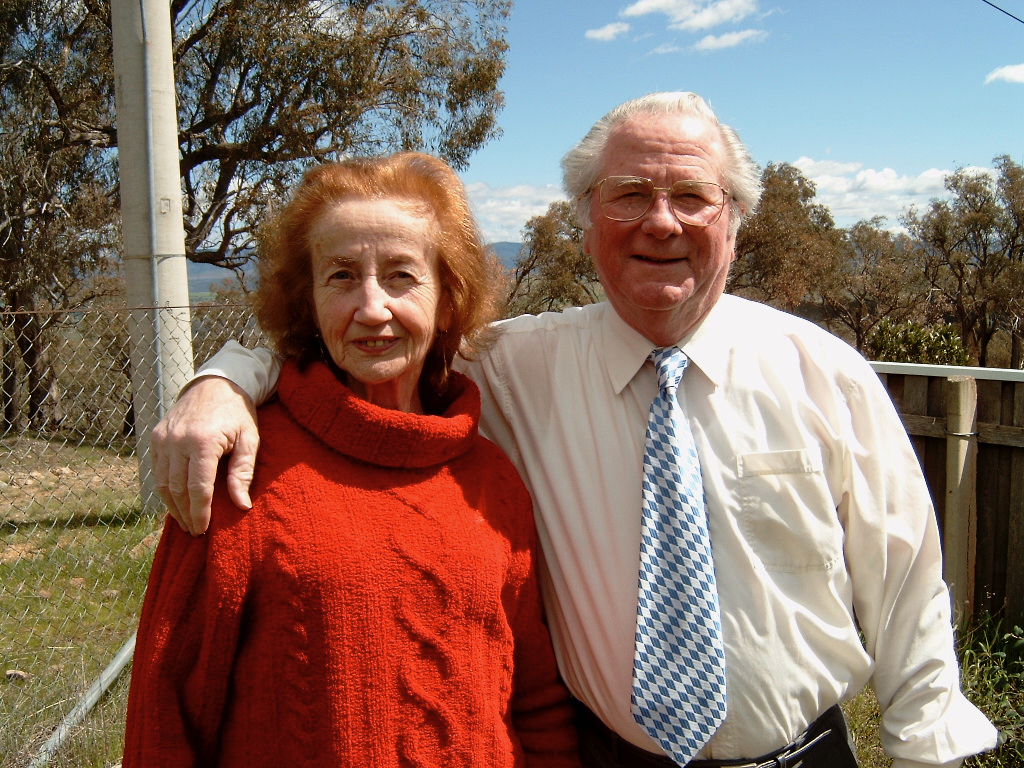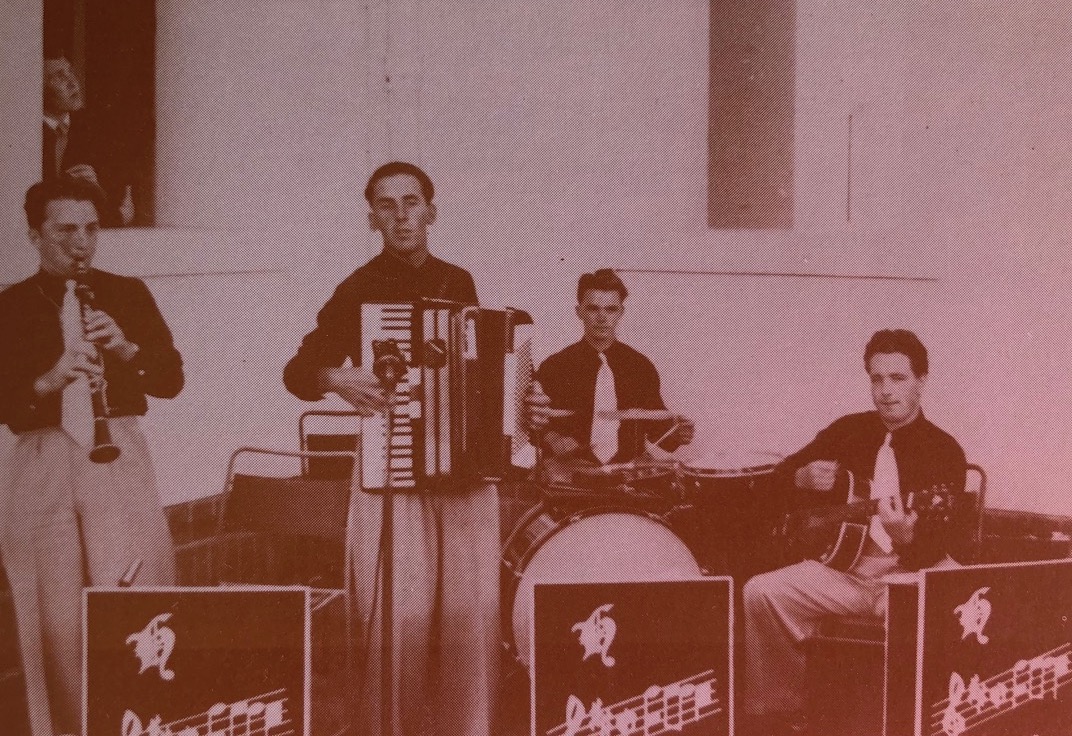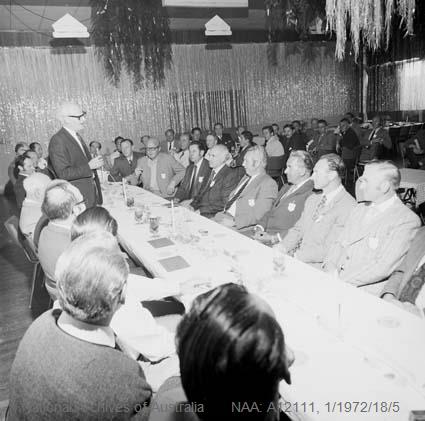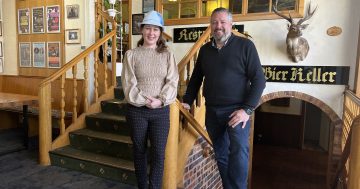
Alfons Stuetz passed away 31 July, 2022, aged 96. He is pictured with his wife Irmgard, who passed away in 2006. Photo: Courtesy Stuetz family.
In late December 1951, after a four-week sea journey from Germany, Alfons Lorenz Stuetz arrived in Canberra to begin a two-year work contract. This year, the much-loved larrikin who left his mark on Canberra’s building industry and on the city’s rich cultural heart for 70 years passed away.
In the early 1950s, tradesmen were needed to build houses for the several thousand public servants and their families being transferred from Melbourne.
An innovative idea by AV “Bert” Jennings, owner of construction company AV Jennings, brought 150 young tradesmen from Germany on two-year contracts to build 1850 houses. Alfons saw an opportunity to leave war-torn Germany, use his carpentry and cabinet-making skills, earn double the standard wage, establish himself financially and then return home.
Much to the surprise of the skilled German tradesmen, Canberra was extremely quiet – it was the Christmas break. Work was not due to start until mid-January. The weather was exceedingly hot after the winter temperatures of Germany, and the men spent much of their time swimming at Manuka Pool to pass the days.
Life was a big adjustment for them all. Hostel living, heat, isolation, language barriers for many, and loneliness. But they made their own fun. Parties in hostel rooms were common, and the men enjoyed bike riding, swimming, skiing in the Snowy Mountains and bush walking. A Bavarian dance group was formed, and music bands performed at dances each weekend. Jennings Germans added much life to Canberra in those days.

The Jennings Germans added much to the cultural life of Canberra. Photo: “History of the Jennings Germans”, Alfons Stuetz.
Soon the two-year contract was up. Houses had been built in Yarralumla, Ainslie, O’Connor, Harman and Narrabundah. Many of the Germans stayed on in the Canberra area and continued in the building industry, some starting their own businesses.
In August 1954, Alfons formed a partnership with some of the other Jennings Germans and established Canberra Furniture Manufacturing Company, making furniture and other joinery items in rented premises in Lonsdale Street, Braddon. This company later became CFM Kitchens then CFM Roof Trusses and finally Canberra Roof Trusses. With business taking off, the team built a factory in Wiluna Street, Fyshwick in 1958 then a larger one in Gladstone Street, and finally even larger premises in Mitchell.
Alfons built more than 150 of Canberra’s houses. The fabricated roof trusses built with his business partners were new technology and innovative game changers that were received enthusiastically by the building industry.
Alfons called Canberra home and sent for his German girlfriend Irmgard Holzer to join him. They married in Canberra in January 1954, built a home in Hawker and had four children, Angelika, Werner, Harold and Terry.
This was a happy home with Sunday parties, music, fun, laughter and wonderful German food. Alfons created a room downstairs especially for regular card nights (Schafkopf), and the familiar aroma of strong Limburger cheese wafted up — a happy recollection for Alfons’ youngest son, Terry.
“Dad enjoyed his card nights and he thoroughly enjoyed life. He was passionate about everything he did. He had an infectious charisma and was well respected,” Terry told Region.
“A master craftsman, his attention to detail was exceptional and he took enormous pride in everything he made.”
In 1961, Alfons and some of his mates formed the Harmonie German Club – the name “Harmonie” specially linking the goodwill the Germans brought with them after the troubled war years. On the inaugural committee, Alfons played a pivotal role in the club’s activities and successes until recent years.
A vibrant man with enormous energy, he organised large reunions of Jennings Germans at the club. Christmas gatherings of the group were always popular.
Meticulous with record-keeping and taking photos, Alfons unwittingly created an archive of photos and documents about the Jennings Germans.
In 1986, Alfons published a detailed book, History of the Jennings Germans, which outlined the dedication and successes of the Germans who came to build the city. So demonstrative in keeping the group in contact, Alfons became known as “father of the Jennings Germans”.

Celebrating 25 years of Jennings Germans at the Harmonie German Club in 1977. Alfons Stuetz was instrumental in organising reunions and keeping in contact with the group. Photo: National Archives of Australia.
Ever busy even after retirement, Alfons built a workshop at the Hawker home and continued to make high-quality furniture for his children and grandchildren. He told his family: “furniture has attitude, grace and passion. It is almost art”.
Alfons’ beloved wife Irmgard passed away in 2006. Alfons Stuetz passed away 31 July, 2022, aged 96, leaving four children and their partners, 14 grandchildren and many great grandchildren.
The opportunity opened for the tradesmen by AV Jennings created prosperity for those who took the challenge in a far-off land. It also created a positive impact on housing issues of the time and the culture of a new city. Alfons Stuetz embraced that challenge, created a home here and built many more.
Vale Alfons Stuetz.




















